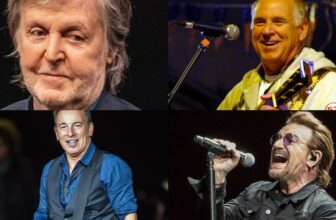20 Famous Artists with Tinnitus

People with tinnitus experience an internal ringing noise in one or both ears. The condition can be caused by a circulatory-system problem, injury, constant exposure to loud noises, or simply develop throughout the years. Tinnitus is quite common and it’s estimated that 15% of the US population experience it in some form.
This topic is quite personal to me, as I’ve had permanent noise-induced tinnitus for at least 6 years, and it’s an extremely difficult condition to deal with.
Tinnitus can rob you of your silence forever. It’s quite a scary thought, particularly for those that are just beginning to experience it. However, many people learn accept it with time.
Many famous artists suffer from tinnitus on a daily basis. This can be particularly daunting if you make a living working as a musician. Still, many of the world’s most renowned music artists (past and present) struggle but persevere through tinnitus or other ear-related conditions daily.
Note: If you are experiencing tinnitus, then please consider going to a doctor. There are different forms of tinnitus, some are noise induced whereas others may be due to a curable problem or infection. While you’re at it, do yourself a favour and get a set of musicians earplugs and start wearing them when you are playing music, attending concerts, or around any loud noises for extended periods of time. There’s no cure for many forms of tinnitus, don’t wait until it’s too late.
Contents
- 1. Chris Martin (Coldplay)
- 2. Anthony Kiedis (Red Hot Chili Peppers)
- 3. Will.i.am
- 4. Grimes
- 5. Phil Collins
- 6. Bono (U2)
- 7. Beethoven
- 8. Brian Wilson (Beach Boys)
- 9. Barbra Streisand
- 10. Jeff Beck
- 11. Ozzy Osbourne (Black Sabbath)
- 12. Pete Townshend (The Who)
- 13. Brian Johnson (AC/DC)
- 14. Sting
- 15. Eric Clapton
- 16. Neil Young
- 17. Paul Stanley (KISS)
- 18. Moby
- 19. Thomas Bangalter (Daft Punk)
- 20. William Boyce
- 21. Ralph Vaughan Williams
- 22. Plan B
- Summary
1. Chris Martin (Coldplay)
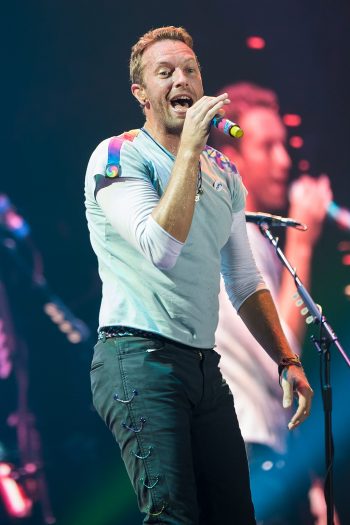
The “Coldplay” lead singer Chris Martin is is a musician who developed tinnitus after years of performing live. He admitted that, after a decade of struggling with the condition, he started wearing protective earplugs and went as far as changing some aspects of his diet.
Martin’s advice to other people struggling with tinnitus is frankly simple: “the main thing is not to panic about it.” Martin doesn’t seem to do so, and that may help to explain why “Coldplay” has managed to sell a staggering 100 million records over the years.
Chris Martin has suggested that using a particular herb has helped him ease his symptoms. It might be working for him, but please don’t take his advice as medical advice. Ask a doctor or pharmacist for advice if you are considering it, as it may pose risks for certain people.
2. Anthony Kiedis (Red Hot Chili Peppers)
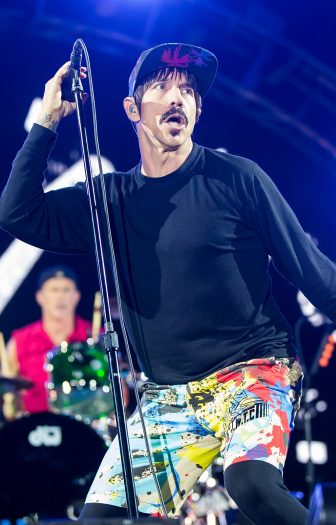
“Scar Tissue” is the title of the autobiography of the “Red Hot Chili Peppers” lead singer Anthony Kiedis, and it makes for one of the most interesting rock books around. Among many crazy stories, Kiedis uses his autobiography to talk about his permanent tinnitus, mainly caused by years of touring.
In addition to being constantly exposed to loud noises, Kiedis’ eardrums were also damaged by one of his most extreme hobbies: jumping to swimming pools from the top of buildings. Diving and water pressure can have a very serious impact on one’s ears.
3. Will.i.am
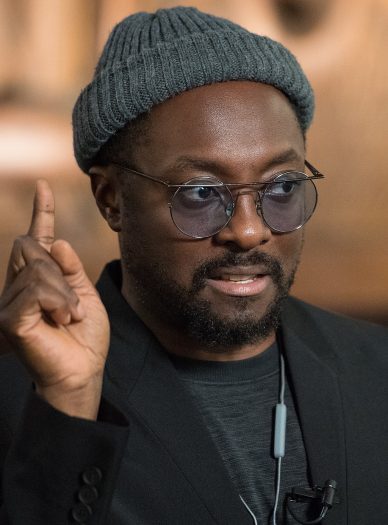
First popularized for being one of the members of “The Black Eyed Peas,” the best-selling record producer/rapper Will.i.am suffers from permanent tinnitus and has once admitted that he doesn’t know “what silence sounds like anymore.” According to Will.i.am, there’s only one thing that can ease his pain – music.
Counterintuitively, Will.i.am’s tinnitus diagnosis inspired him to work even harder and spend more time in the studio. In a telling interview with The Sun, the “American Dream” artist has also admitted that his condition continues to worsen.
4. Grimes

Grimes, the awesome electronic artist, and mother of two children with Elon Musk, is well known to suffer from tinnitus. In 2012 she had to cancel her European Tour, as well as a few Canadian shows due to her hearing problems.
Around the time, she released a tweet explaining that she needed time to stay away from loud music. She also released a tweet saying that she was struggling to sleep due to the loud ringing in her ears.
Grimes has still persevered through it all. She even demonstrated the strength of her perseverance to keep performing as she was getting multiple electric shocks on stage from a faulty effects pedal when she played in Dublin in 2016.
5. Phil Collins
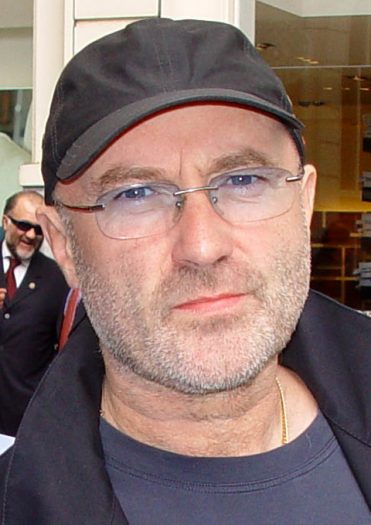
After making history with the prog-rock giants “Genesis,” the multi-instrumentalist Phil Collins went on to build a massively successful solo career. Yet, he did so while coping with a disease that caused him not only to have tinnitus but many other hearing-related problems.
Collins struggles with inadequate blood flow to the ear, a condition that results in some pretty challenging symptoms – especially if you’re a worldwide-famous musician! In addition to tinnitus, he suffers from vertigo, nausea, lack of balance, and even occasional deafness. Collins’ blood-flow problems were reportedly caused by stress.
6. Bono (U2)

Paul David Hewson (a.k.a Bono), the frontman for U2, has reportedly battled with tinnitus for many years. Coincidentally, when he was in school, his pals nicknamed him Bono as a reference to a hearing aid store in Dublin called “Bonavox”!
There are many claims online that Bono included references to tinnitus in his lyrics, but we weren’t able to find credible sources to back those up.
As you can see from the picture above, Bono now protects his hearing on stage using custom in-ear monitors, which has now become very common practice for musicians.
7. Beethoven
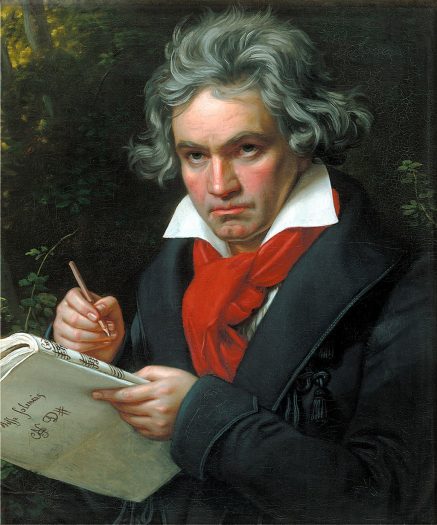
The poster child for music artists struggling with ear problems, the great 18th-century composer Ludwig van Beethoven began to lose his hearing at the young age of 28. It’s well-documented that Beethoven found it hard to compose due to a “roar” that started in his left ear and eventually developed into a much more serious condition.
At one point, Beethoven’s hearing was severely impaired. Remarkably, he wrote his seminal “Ninth Symphony” while being almost deaf. Despite the fact he’s one of the most studied composers of all time, historians are still not exactly sure about what caused Beethoven’s tinnitus.
8. Brian Wilson (Beach Boys)
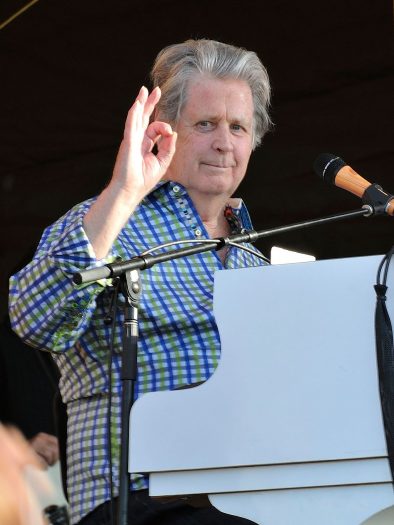
The American musician Brian Wilson is the mastermind behind the great songs of the “Beach Boys,” one of the most renowned pop-rock bands of all time. Despite all of his success, though, Wilson struggled with diminished right-ear hearing pretty much since he was born.
There are a few explanations for what caused Wilson’s hearing problems. Some believe he was born this way, while others have pointed out he suffered an injury when he was just a toddler. Either way, it’s astounding that he managed to make an album like “Pet Sounds” while being virtually deaf from one ear.
9. Barbra Streisand
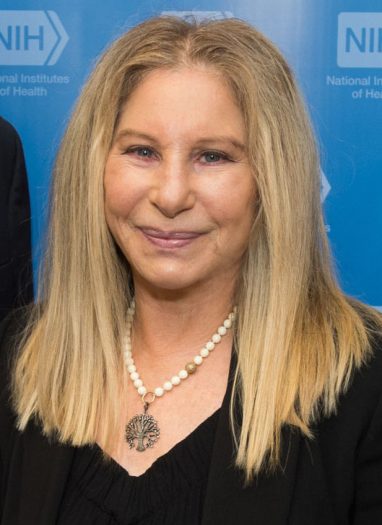
The American singer and actress Barbra Streisand is one of the most prolific singers of the 20th century. Over the years, she’s released at least 400 records and sold a whopping 72 million albums. Yet, she did all of that while coping with tinnitus, a condition she developed at a very young age.
Streisand was reportedly only nine years old when she had her first tinnitus episode. She was at school and started hearing an uncomfortable ringing in her ears. While she’s never determined what caused the ringing, it has never gone away since.
10. Jeff Beck
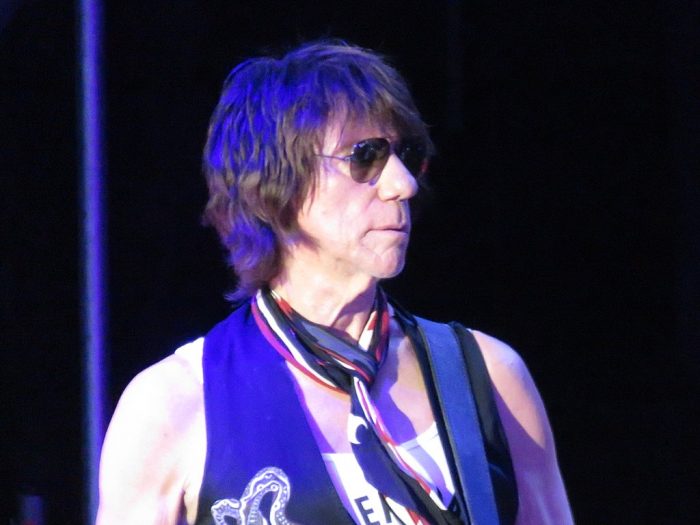
The English guitar virtuoso Jeff Beck is one of jazz fusion’s greatest and a two-time Rock and Roll Hall of Fame inductee. However, Beck was never keen on wearing earplugs. Sadly, the constant exposure to loud noises over years of playing rock music live caused Beck to develop tinnitus.
Beck’s hearing problems got so bad that he was even forced to postpone a concert he was going to play with “Guns N’ Roses” after being temporarily deaf due to a cymbal crash – as reported by Clash. It goes to show that tinnitus is no joke and that all people should take good care of their ears.
11. Ozzy Osbourne (Black Sabbath)
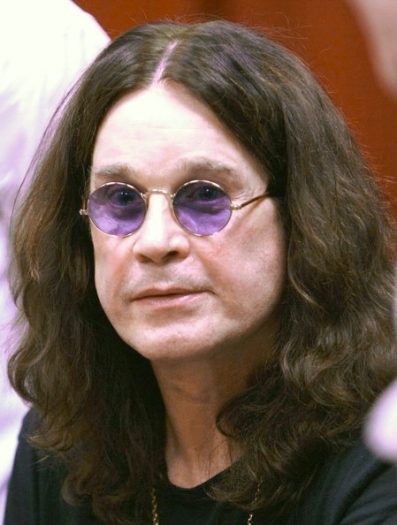
Before starring in his reality show, the sensational Ozzy Osbourne was the lead singer of the proto-metal band “Black Sabbath,” arguably one of the most influential rock acts of all time. “Black Sabbath” was heavy and dark, but that came with a cost. Due to constant exposure to loud noises, Ozzy developed a particularly daunting form of tinnitus.
Old age and substance abuse have also contributed to what Ozzy has once described as “permanent tinnitus.” Normal tinnitus comes and goes, but Ozzy’s reportedly continuous, which means he’s always hearing a ringing in his head.
12. Pete Townshend (The Who)
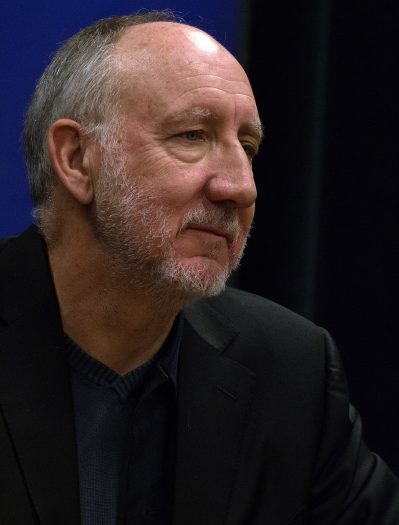
The legendary “The Who” musician Pete Townshend is sadly partially-deaf and forced to live with tinnitus. Like many other of rock music’s greats, Townshend’s hearing problems were caused by repeated exposure to loud sounds. It’s the price of rocking hard on the live stage for decades on end.
Townshend’s hearing problems are serious, but you shouldn’t worry too much – the “The Who” icon is more than ready to laugh about them. After all, he spoke openly and humorously about his tinnitus in a David Letterman interview.
13. Brian Johnson (AC/DC)
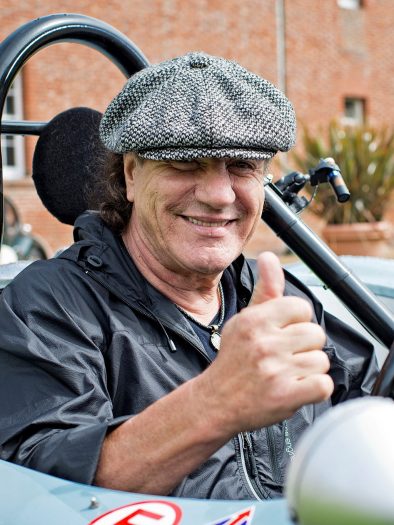
While most tinnitus diagnoses are caused by years of repeated irresponsible behavior, the “AC/DC” frontman Brian Johnson was able to distinguish the moment in time his tinnitus popped up (literally). He was at the New York race track for a 2008 event and forgot to wear earplugs. It was then his ears popped, giving way to an uncomfortable ringing.
Johnson’s tinnitus was so bad that it even resulted in the cancellation of a few “AC/DC” shows. After six months of roaring tinnitus, Johnson committed to an experimental treatment that helped him to get better.
14. Sting
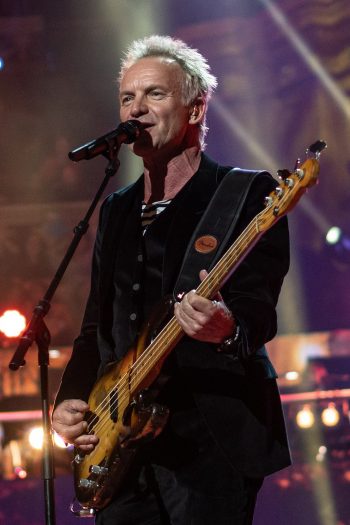
In an interview with SiriusXM, the former “The Police” lead singer Sting revealed that he’s suffered from hearing issues for a long time, but refuses to wear a hearing aid. Humorously, Sting said that “what” was his favorite word and that wearing a hearing aid caused him to listen to more than what he wanted to.
Despite his hearing issues, Sting continues to put out some great tracks, including 2021’s “Rushing Water.” Active since 1971, the Wallsend, England-born musician has sold over 100 million records over the years.
15. Eric Clapton
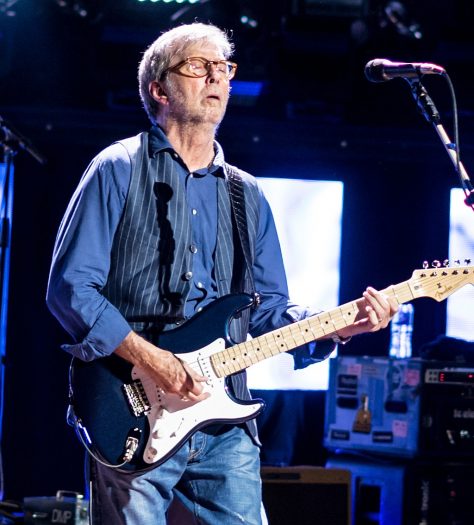
The guitar virtuoso Eric Clapton suffers from tinnitus and hearing at least since 2018. Advanced age was most likely the cause behind Clapton’s diagnosis. In his late 70s, the “Tears In Heaven” singer also struggled with peripheral neuropathy, a disease that causes weakness in one’s hands and feet, and makes it harder for him to play the guitar.
Despite all the complications, Clapton refuses to retire and remains active today, both as a recording artist and touring musician. Widely regarded as one of the best guitarists of all time, he’s won a total of 18 Grammy Awards.
16. Neil Young
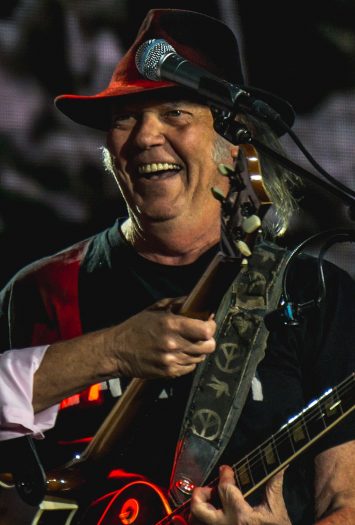
The legendary Canadian-American singer Neil Young is best known for his soft ballads, but he’s also worked on some pretty hard tracks with his backing band “Crazy Horse.” While mixing the live album “Weld” in the early ’90s, Young developed tinnitus, and the condition caused him to change his habits.
Arguably Canada’s most renowned songwriter, Young then decided to make a much softer album – namely, “Harvest Moon” – because he was tired of being exposed to loud sounds. Despite his condition, Young continued to release hard-hitting songs with his band “Crazy Horse,” as seen in the 2021 rock album “Barn.”
17. Paul Stanley (KISS)
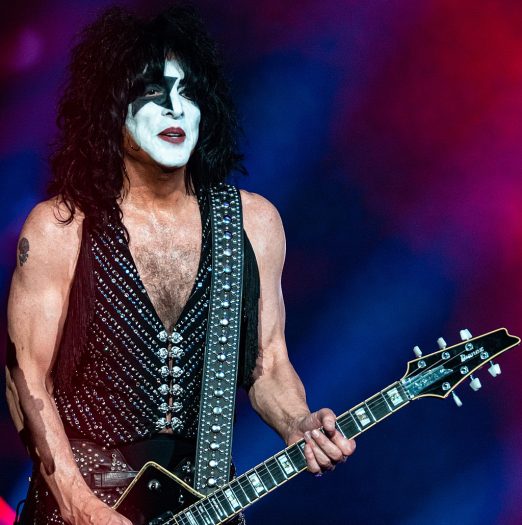
The rhythm guitarist Paul Stanley is a founding member of the glam rock icons “KISS” and has built a tremendously successful music career since the early ’70s. However, Stanley hears music differently from most people, as he was born with a hearing condition known as microtia.
Luckily, Stanley doesn’t suffer from unilateral microtia, meaning he can hear properly from one of his ears. A birth defect, microtia happens when one’s external ear is small and not developed properly. According to Stanford’s Children Health, microtia affects roughly one out of 5.000 babies.
18. Moby

The electronica whiz and infamous vegan Moby played with a few punk bands before releasing his seminal 1999 album “Play.” A former member of the alternative rock group “Ultra Vivid Scene,” Moby developed tinnitus early on after being repeatedly exposed to loud noises. To contain the constant ringing, Moby wears earplugs routinely.
After first hitting the spotlight in the early ’90s, Moby decided to go back to punk with his 1996 album “Animal Rights,” which was met with mixed reviews. Later, he decided to embrace the more tinnitus-friendly style of electronic music for which he is still known today.
19. Thomas Bangalter (Daft Punk)

Even if you don’t know the name Thomas Bangalter, there’s a pretty good chance you’re familiar with his electronic music project “Daft Punk.” Before releasing the outstanding funk masterpiece “Random Access Memories,” “Daft Punk” was a club act first and foremost.
Repeated exposure to loud tracks caused Bangalter to develop tinnitus in the early 2000s, and his hearing problems were so bad he decided to quit performing at the club altogether. It was later reported that Bangalter managed to recover from tinnitus, even though there are few details (and some skepticism) on how he managed to do so.
20. William Boyce
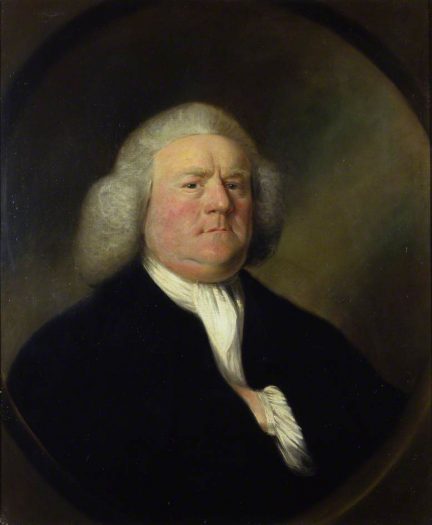
The England of the 18th-century wasn’t exactly a vibrant European musical capital, but a few classical musicians were doing some great work in Britain. One of those was William Boyce, a Mozart and Bach enthusiast who worked as an organist and wrote a series of symphonies.
Despite his respectable output, Boyce ended up becoming more famous for continuing to work as a musician despite being virtually deaf – just like Beethoven. Curiously enough, Boyce only decided to pursue a career as a composer after his voice broke in 1727. He died from gout in 1779.
21. Ralph Vaughan Williams
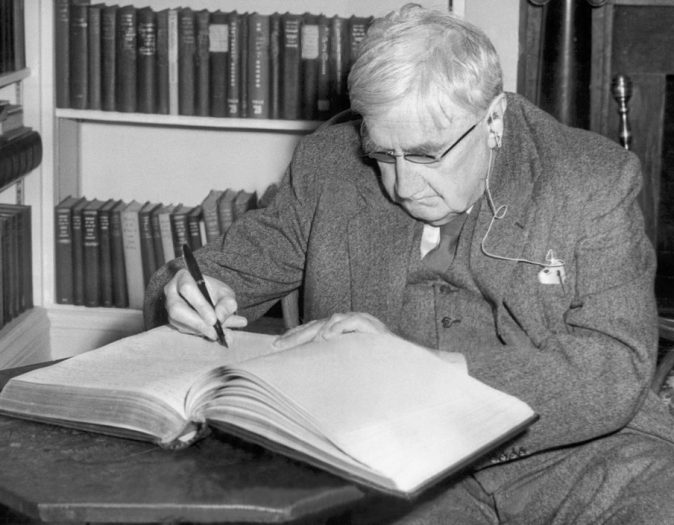
The late English composer Ralph Vaughan Williams is yet another classical musician whose career was partially defined by hearing problems. He damaged his hearing when he was just a young man, after fighting for his country during World War I. His emotionally-daunting war experience was one of the main inspirations for his life’s work.
An admirer of the French composer Maurice Ravel, Williams introduced new musical ideas and aesthetics to British listeners before passing away in 1958.
22. Plan B
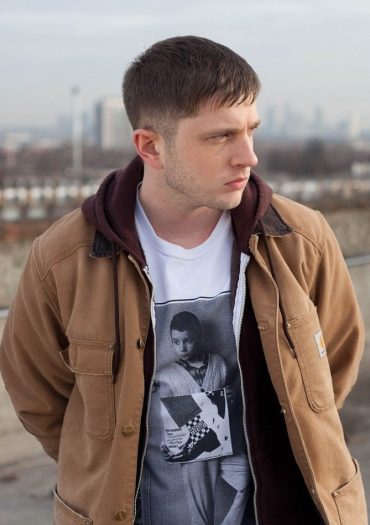
One of the youngest artists to make it to the list, the English rapper/singer Benjamin Ballance-Drew (best known as Plan B) suffers from tinnitus. In 2012, he joined the aforementioned Chris Martin in a campaign called The Loud Music, which aimed at incentivizing musicians to protect their hearing from early on.
The message of the campaign, which should be taken into account by all musicians reading, is simple: if you’re working with music or being constantly exposed to loud noises, always wear earplugs. Previous studies have proved that the use of earplugs can be beneficial for preventing temporary hearing loss.
Summary
Tinnitus is a problem that affects a lot of musicians. It is important to protect your hearing by wearing earplugs if you are constantly exposed to loud noises. Some famous musicians who have suffered from tinnitus include Chris Martin, Thomas Bangalter, and William Boyce.
It is important to take steps to prevent tinnitus and other hearing problems. There are also resources available to help those with tinnitus manage their condition, such as hearing aids and specialized therapy. Ultimately, taking measures to prevent hearing loss can help you continue creating great music for years to come.
Grimes Image by: Jordan Uhl, CC BY 2.0, via Wikimedia Commons
Brian Wilson Image by: Takahiro Kyono from Tokyo, Japan, CC BY 2.0, via Wikimedia Commons
Jeff Beck Image by: Egghead06, CC BY-SA 4.0, via Wikimedia Commons
Bono Image by: Daniel Hazard, CC BY-SA 4.0, via Wikimedia Commons
Chris Martin Image by: Sebwes89, CC BY-SA 4.0, via Wikimedia Commons
Anthony Kiedis Image by: Sven Mandel, CC BY-SA 4.0, via Wikimedia Commons
Phil Collins Image by: Dicknroll, CC BY-SA 3.0, via Wikimedia Commons
Pete Townshend Image by: Ross Belot, CC BY 2.0, via Wikimedia Commons
Brian Johnson Image by: Jaguar MENA, CC BY 2.0, via Wikimedia Commons
Sting Image by: Raph_PH, CC BY 2.0, via Wikimedia Commons
Eric Clapton Image by: Raph_PH, CC BY 2.0, via Wikimedia Commons
Neil Young Image by: Raph_PH, CC BY 2.0, via Wikimedia Commons
Paul Stanley Image by: Raph_PH, CC BY 2.0, via Wikimedia Commons
Moby Image by: Justin Higuchi from Los Angeles, CA, USA, CC BY 2.0, via Wikimedia Commons
Thomas Bangalter Image by: Andrew Solio at en.wikipedia, CC BY-SA 4.0, via Wikimedia Commons
Plan B Image by: Atlantic Records (UK), CC BY-SA 3.0, via Wikimedia Commons



